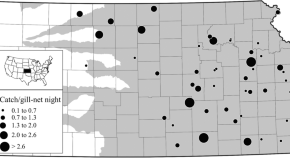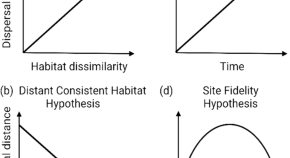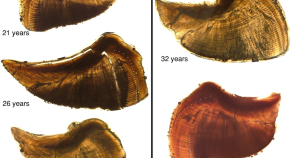Examination of freshwater drum populations at the center of their latitudinal range: implications for development of diverse recreational angling opportunities
Authors (first, second and last of 4)

Collection
We are pleased to announce a Special Issue of Environmental Biology of Fishes focusing on native North American fish species that have been historically neglected due to archaic bias.
Freshwater or inland fishes have traditionally been categorized according to their perceived value to humans. However, by perpetuating the dichotomy of game or sport fishes versus other fishes—often relegating the “non-game” or “non-sport” fishes to the pejorative “rough fish” category—we fail to appreciate the intrinsic value of native fishes and their importance in healthy ecosystems. These non-game fishes have been historically maligned, either being the objects of benign neglect or even being subject to active removal if seen as competitors or predators (e.g., bowfin, gars) of desired species or if misidentified by anglers (e.g., native lampreys, buffalofishes and other suckers) as harmful invasive species. Research on the biology of these fishes is underrepresented in the literature, and there is generally inadequate, if any, harvest protections or other management plans. Expansion of new fishing techniques (e.g., bowfishing, microfishing) is expanding the number of fish species being placed into the game or sport fish categories, but the intrinsic value of all native fishes and their role in healthy ecosystems is still underappreciated.
Dr. Alec Lackmann is an Assistant Professor in the Department of Mathematics and Statistics at the University of Minnesota Duluth. His research focuses on freshwater fishes of North America, especially those species that have been historically neglected due to archaic bias. He studies age and growth, population biology, life history, and fisheries (e.g., bowfishing) of species groups such as the buffalofishes, gar, redhorse, bowfin, quillback, and more. His work combines quantitative biology, neglected ichthyology, and conservation biology.
Dr. Solomon David is an aquatic ecologist and Assistant Professor in the Department of Fisheries, Wildlife, and Conservation Biology at the University of Minnesota, with a focus on fish biodiversity, conservation, and science communication. His current research focuses on the ecology of ancient fishes (e.g., gars and bowfins), and how those species can help us better understand and conserve aquatic ecosystems. Additional projects involve conservation of Great Lakes migratory fishes and peripheral populations of species. He also communicates science to raise awareness of the value of aquatic ecosystems and freshwater biodiversity.
Doug Watkinson is a Research Biologist with Fisheries and Oceans Canada, based in Winnipeg, Manitoba. His research studies the distribution, systematics/taxonomy, ecology, and anthropogenic impacts to fish found in Alberta, Saskatchewan, Manitoba, and northwestern Ontario, with a focus on species at risk and aquatic invasive species. He is a member of the Freshwater Fishes Subcommittee of the Committee on the Status of Endangered Wildlife in Canada (COSEWIC), the Fish and Wildlife Enhancement Committee – Fish Enhancement Subcommittee, a board member on Fish Futures Inc., and the Chair of the Invasive Species Council of Manitoba.
Dr. Margaret Docker is the Editor-in-Chief of Environmental Biology of Fishes, and a Professor in the Department of Biological Sciences at the University of Manitoba. Her research focuses on evolutionary, population, and conservation genetics of lampreys and other freshwater fishes, including the use of environmental DNA for monitoring cryptic aquatic organisms. She is the Co-chair of the Freshwater Fishes Subcommittee of the Committee on the Status of Endangered Wildlife in Canada (COSEWIC), serves on the Great Lakes Fishery Commission Sea Lamprey Research Board, and is a Fellow of the American Fisheries Society.




